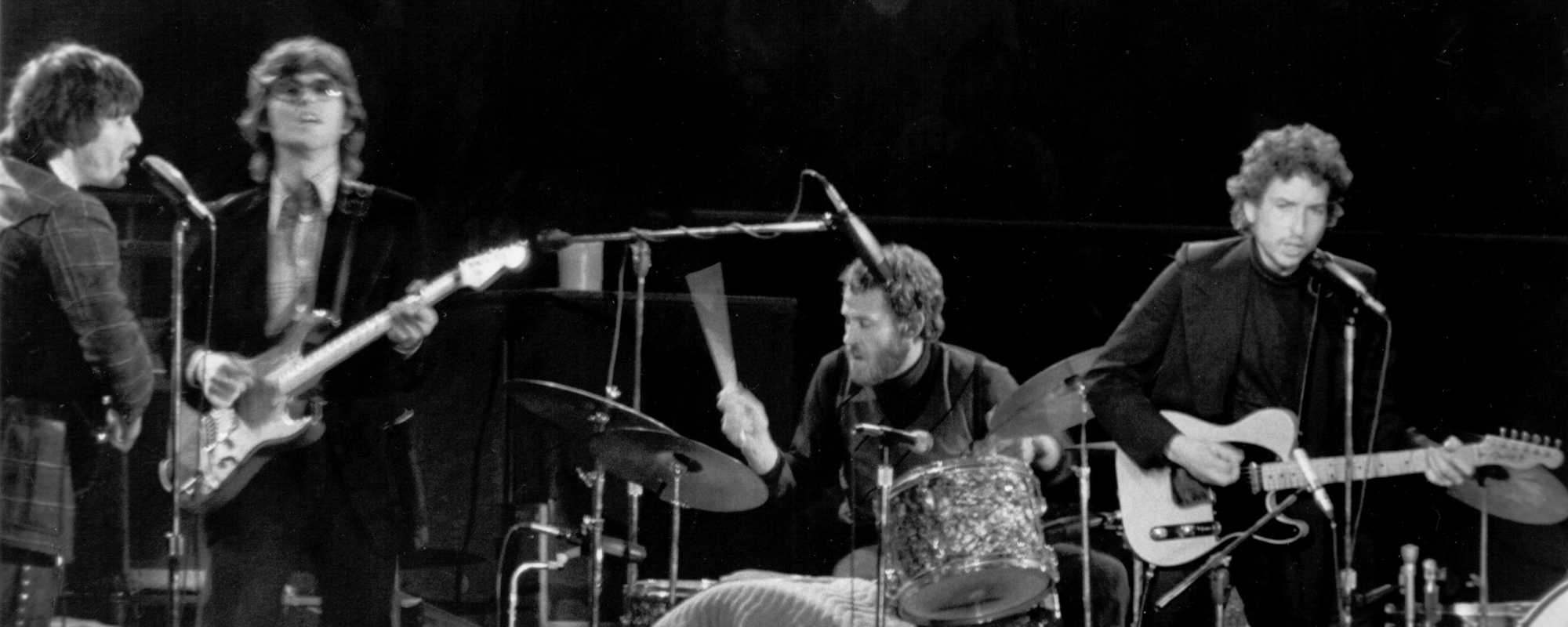After releasing the band’s 15th album, Liberté, in 2021, the Doobie Brothers reunited with Michael McDonald after nearly 20 years for a run of shows commemorating the band’s 50th anniversary. McDonald, along with founding members Pat Simmons and Tom Johnston, kept the momentum from the tour and assembled a collection of songs for the band’s 16th album, Walk This Road.
“All of us feel as though we’ve gotten this last shot to go out and play to the audiences on the 50th that made us want to do it again,” McDonald tells American Songwriter.
Videos by American Songwriter
Produced by John Shanks, who co-wrote the album with the band and previously worked with Simmons, Johnston, and guitarist John McFee on Liberté, Walk This Road was recorded in Los Angeles and marks the first time all three principal songwriters contributed tracks on the band’s album. It’s also the first collection of new songs by the band to feature McDonald since their 1980 album One Step Closer.
Opening on the title track, featuring Mavis Staples, is McDonald’s first contribution to Walk This Road, which started as a narrative of the band’s journey together over the past five decades into something more universal.
“Shanks said, ‘I’d like to see you guys write something about your history together,’” McDonald says, “and as soon as we started writing, it really became a bigger picture of where we’re at, as a country, as a humanity, what have we lost sight of? We’re inhabiting this little blue ball, going through space to God knows where, and if we’re not for each other, then what are we for?
“When do we just stop and take real stock of the fact that we’re only here to be of service to each other? We’re not here for any other reason.”
This message played into the album title. “It’s incumbent on us to move everyone along, to help those who are struggling on the road, to keep up,” says McDonald. “We all have the same destination in mind. We all want the same things. Every culture wants the same thing. They want a feeling of security, a feeling of the ability to pursue their happiness and the rights that should be guaranteed to all people, not just to the few that feel that they should be privileged somehow.”
Throughout Walk This Road is a grander message of hope, says Simmons, who contributed three songs to the album. “We all go up and down with our feelings about life and what we’re facing, politically, economically, socially, and in the end, it always comes back to hoping things get better, no matter where you are,” says Simmons. “There is hope in store, no matter how bad things look. There’s light at the end of the tunnel, and I still feel that way, and I’m hoping this album continues that dynamic. It’s a message of hope. Almost every song has that message of hopefulness that we need right now, that we’ve always needed, now more than ever.”

Walk This Road also features three songs by Johnston, including his homage to “New Orleans,” a city with deep ties to the Doobie Brothers, and Simmons’ tribute to his home of three decades, Hawaii, with “Lahaina,” a region in Maui ravaged by wildfires in 2023.
“I think this album is age-appropriate for us,” says McDonald, who co-wrote the remaining four songs on Walk This Road. “I think we’re all at the stage of life that these songs represent.”
McDonald, who joined Doobie Brothers in 1975, first writing and appearing on the band’s 1975 album Takin’ It to the Streets, says the past five decades since then “whizzed by. It was some of the happiest times in my life, and the fact that I get to go back out with the guys and play, I kind of wish everybody was there, but you know that that’s not possible. But it’s still like coming back to that place where we all once were, and some of us still remain, and it’s something to embrace for me. I always felt in some part of my psyche, in my heart, I was always a Doobie Brother.”
Reuniting with the band also felt more like playing “catch up” for McDonald, who last appeared on the Doobie Brothers’ 2014 album Southbound, a collection of re-recordings of some of the band’s biggest hits. Along with playing the keyboard on Walk This Road, McDonald also incorporated a Hammond B-3 organ on several tracks for the first time.
“I really want to make sure I’m handling my end of things as well as I can as a keyboard player, mostly, and as a singer,” McDonald says. “I try to bring as much of that into it as I can. I never played organ, and I always felt, looking back, that I should have stepped up to the plate on that, for the band’s sake, a long time ago. So this time around, I was determined to play more organ live with the band and on the record.”
For Johnston, who also played on-and-off with the Doobie Brothers throughout the years and released four solo albums from 1979 through 1987, Walk This Road is another watershed moment for the band since its formation in 1970.
“It’s kind of magical in its own way,” says Johnston. “We’re allowed to keep doing this because there’s a response from folks who like the recordings and the live shows, and that’s basically our sphere of activity. And it’s so fun, so why quit when you’re still having a good time and you’re making people happy? And that, now more than ever, is really important.”
The album marks a new beginning for the Doobie Brothers. “It was the most important chapter for me, being in the Doobie Brothers, and playing with Tom and Pat and John and all the other guys that were in the band at the time, like Jeff Baxter, who got me the job,” says McDonald. “I’ve enjoyed being a solo artist, too, and in some ways, fate dealt me that chapter, and I’m glad it did. Still, when I think about my career overall, the first place I go to is being a Doobie Brother.
Walk This Road is the next chapter for the band and one that the Doobie Brothers want to continue exploring. “If we do another record, we might try to just sit in a room together and play the tracks like we used to in the old days and see what happens,” McDonald says, “and maybe write together a little more, so that when we go in, we have stuff that was written by all of us, collectively.”
Simmons says, “We enjoyed doing it [making Walk This Road], and we enjoy doing it so much that we want to do it again. We’re still having fun, and we’re still coming up with some good ideas and thinking about what we’re going to do next.”
Shortly after the release of Walk This Road, McDonald, Johnston, and Simmons will also hit another milestone together with their induction into the Songwriters Hall of Fame during the annual ceremony in June in New York City.
“It’s a renewed excitement for us,” says McDonald. “We’re undoubtedly at a point in life that we think about touring and the thought of getting up in a bunk on a bus when we’re 85. Still, when we get up there and play, it’s like we’re 19 again. So we’re hanging on to that.”

Behind the Songs
Doobie Brothers Michael McDonald, Patrick Simmons, and Tom Johnston break down the songs they wrote on the band’s 16th album, Walk This Road.
“Walk This Road” was written by McDonald and producer John Shanks and centers around unity and moving forward together. On the track, McDonald, Simmons, and Johnston take turns singing along with guest vocalist Mavis Staples. “I was thinking about how we’ve got to learn to live together and get along because it’s going to tear us apart if we don’t,” says McDonald. “That and the idea of justice, because if some of us aren’t free, then none of us are. Having Mavis join us really helped because she’s been singing that kind of message her whole life.”
“Angels and Mercy” — “It’s the most rocking thing on the album,” says Simmons, who wrote the heavier track. “It’s an intense song that was a lot of fun to record as well as just coming up with the parts. It’s something that we can play live and have fun with it.”
“Call Me” — Johnston’s more roots-rock song was one he rewrote the lyrics to years before reworking the track with Shanks in Los Angeles and adding more instrumental touches. “I really wanted to put horns on that,” says Johnston. “To me, that was imperative because I was originally hearing a kind of Al Green flavor. It’s an ‘I’ll be here for you’ kind of thing with a little bit of a film noir feel in the lyrics.”
The song, says Johnston, is about connecting with your significant other and “the happiness you feel when they come over and talk to you or call you on the phone. It’s not a terribly deep song. It’s just a happy song.”
“Learn to Let Go” was co-written by McDonald and delivers a more “traditional,” soulful, Doobie Brothers-in-perfect-harmony track. “‘Learn to Let Go’ is a touching, light-hearted way to look at one of the most important lessons we all have to learn in this life—to move on, to let go,” says McDonald, “and no one’s gonna get out alive on that one.”
“State of Grace” is a narrative about reconciliation written by Simmons. “There are a lot of references to recovery and enlightenment,” says Simmons. “Not enlightenment in terms of being enlightened, but in terms of waking and seeing the important things that you’ve been missing.”
“Here to Stay” — Tom Johnston’s more anthemic contribution to the album covers perseverance. “I wrote that about 10 years ago and redid the track with John [Shanks],” says Johnston. “We redid some of the lyrics. The chord changes remained the same, and there’s a new solo on it. Overall, he put a lot of slide [guitar] on it, as well as other instrumentation. I played electric and acoustic guitar and did the vocals. Then Pat [Simmons], Mike [McDonald], and John Cowan did the other background vocals.”
“The Kind That Lasts” was inspired by the rhythmic sound between the New Orleans band the Meters and Professor Longhair in the early ‘70s and was a song McDonald had shelved for years. “I’ve been a fan of that sound for a long time, but I had never really tried it before,” says McDonald. “I tried to approach it with a lot of care and appreciation.”
Lyrically, the song explores the idea of not putting your “eggs in someone else’s basket,” says McDonald. “Don’t find your meaning of life in someone else before you make sure that you believe in yourself,” he says. “Learn to love yourself first, and then you’ll find that maybe love is something different than you know.”
“New Orleans”— New Orleans was always a special place for the Doobie Brothers, since their early years, particularly for Johnston, who kept the band connected with other artists in the area throughout their years in and out of the city. “The tunes are a little more earthy this time around compared to our previous work,” shares Johnston. The track also features backing vocals from Sharlotte Gibson. “I like stretching out instead of staying safe and doing a rubber stamp of things you’ve done before.”
McDonald says, “We’ve been to New Orleans 100 times. I know Tommy loves New Orleans, but we all do. We have friends there. We love the music. We love the food. It’s a culture all its own that we can’t get enough of it when we’re there, so that song has a little bit of a larger meaning to everyone in the band.”
“Speed of Pain” — McDonald’s “Speed of Pain” covers regrets and lessons learned. “You can hear the extreme angst and intensity in Michael’s voice on this song,” says Simmons. “I feel like it might be one of his most emotionally heartfelt vocal performances ever.”
“Lahaina” Walk This Road ends on an ode to the Hawaiian town hit by deadly wildfires in 2023, which killed 102 people and displaced thousands. Co-written by McDonald, Shanks, and Simmons, who has been a resident of Maui for 30 years, the ballad features Simmons’ Hawaii neighbors Mick Fleetwood on drums and percussion, backing vocals by Henry Kapono, and Jake Shimabukuro on ukulele.
“We were hoping there was something we could do to contribute to the recovery efforts,” says Simmons. “And being a musician, that’s my go-to place whenever I’m trying to assist. I’ll write a song and donate the proceeds. And more than raising funds is raising awareness of the needs.”
He adds, “It’s going to be many years until people are able to recover, so we all have to just keep the effort going and keep people engaged and keep trying to raise funds all the time. It’s going to be the battle.”
Photos by Clay Patrick McBride













Leave a Reply
Only members can comment. Become a member. Already a member? Log in.